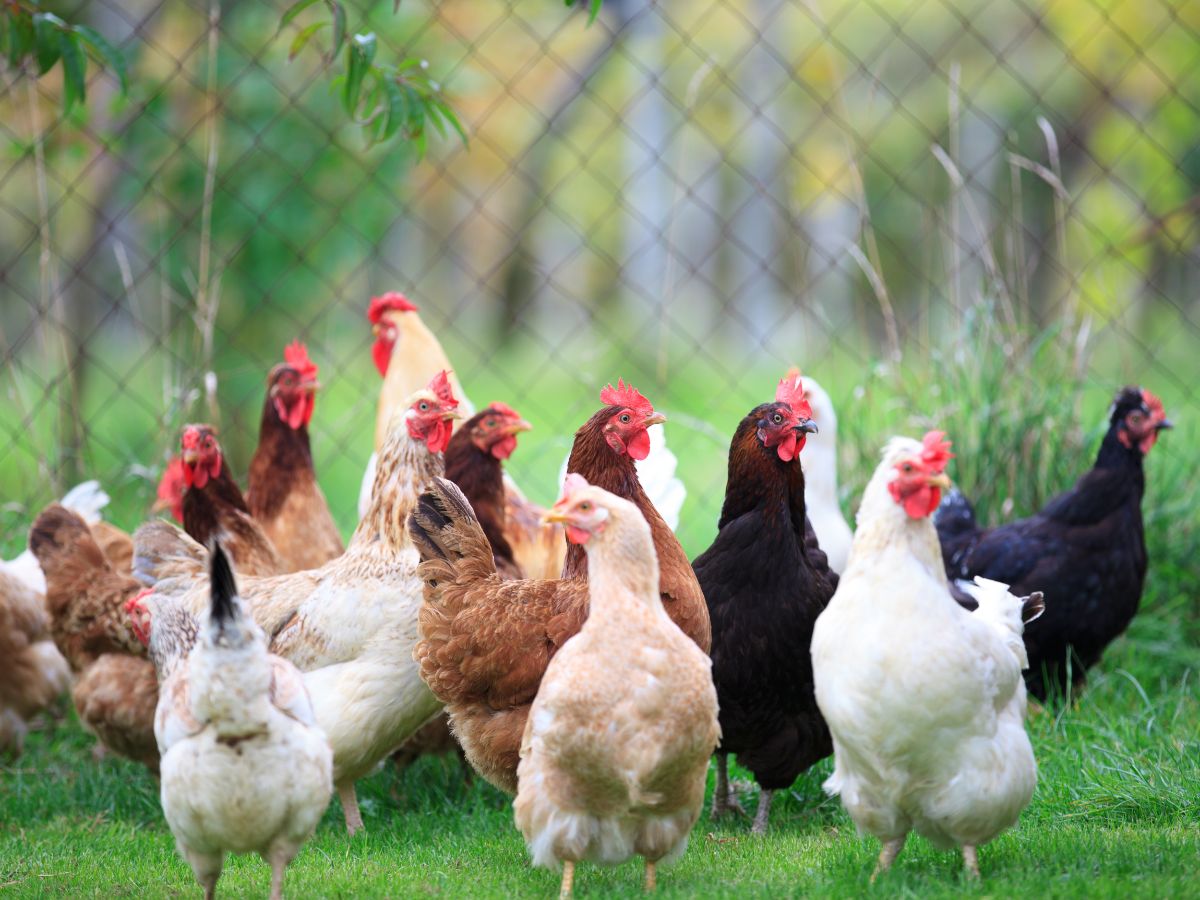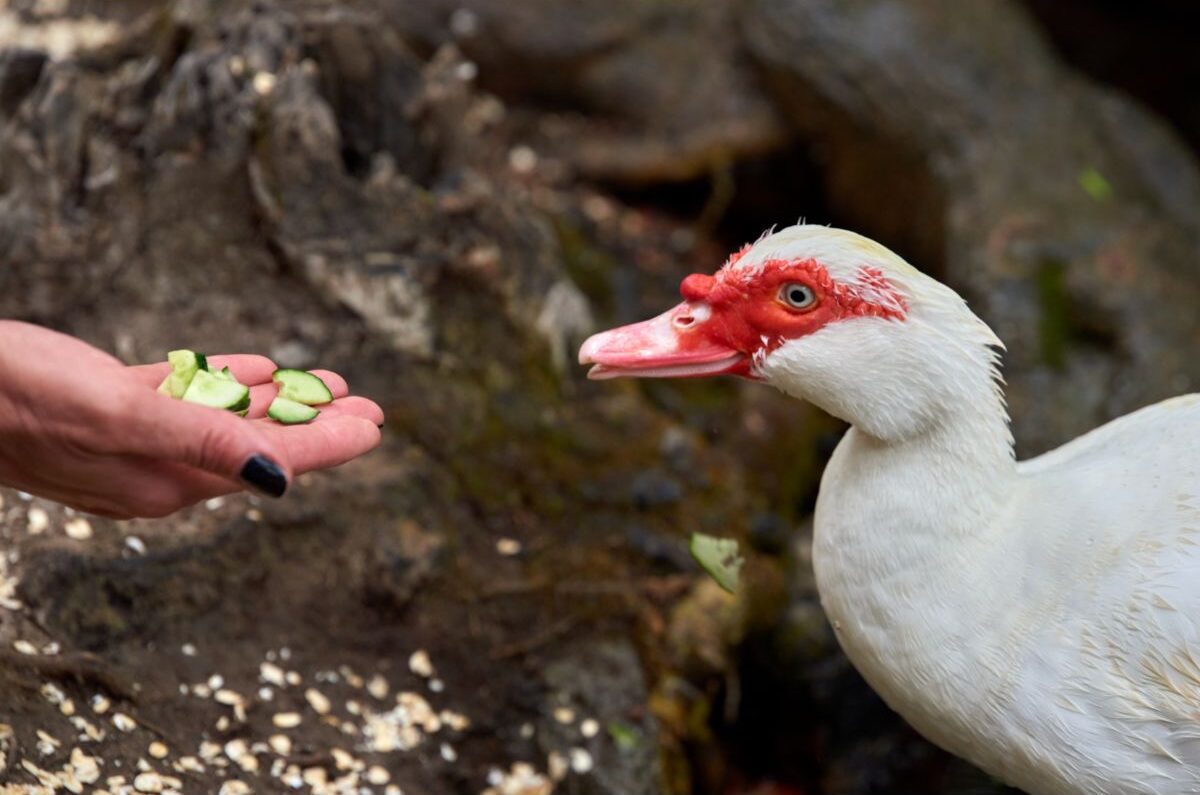In our busy and chaotic world, watching your flock forage peacefully in the backyard can be rewarding. Chickens are happiest when they are well fed and can roam freely. These delightful backyard companions can be easy to take care of, and being able to call your flock back to the coop is invaluable. So, how do you train your chickens to come when called?
Chickens love to eat, so they will quickly respond to your call if they associate it with a tasty treat. Using food as a reward will encourage your flock to be receptive to your training methods.It is relatively easy to train your chickens to come when called.
Before you allow your chickens to roam free, it is advisable to have a strategy to get them back into their coop at night. Once your chickens have learned to respond to your call, it is quite gratifying and entertaining to witness your flock running towards you as fast as their little legs can carry them.
Contents
How To Train Your Chickens
Teaching your chickens to come when called will help you to keep them from straying too far from their coop. It is an invaluable way to keep them safe and secure. You can use various steps to train your chickens.
Step 1: Start Training In A Smaller, Fenced Area
The best way to start training your chickens to come when called is to ensure that the area outside their pen has a temporary enclosure around it. It is far easier to train your chickens to respond to your call when they are in a smaller area.
Once you have added your temporary enclosure, you can sit inside the area, allowing your chickens to get used to you and your voice. Your flock already recognizes you as the primary source of food and water, so this step will not be difficult, as your chickens will be pleased to see you.
Step 2: Decide What You Will Use For Your Call
Chickens are not as adept at interpreting human sounds as dogs are, so you must choose one clear and distinct sound as your chicken call. You may use any consistent sound, but it is preferable to use an object or a tool instead of your voice, as others can then call the chickens for you if you aren’t available to call them.
- You could try shaking a jar of seeds or banging a cup or bowl on the side of the chicken coop.
- A bell or whistle are also great options to use as a chicken call.
- You could buy an inexpensive pet clicker from a pet store.
- If you opt to use your voice, make sure that the word or phrase you use is said in the same way each time, such as, “Come on, Girls!” or “Here! Chick! Chick!”
- You could also use a combination call. For example, you could shake a container of sunflower seeds while calling, “Come! Chick! Chick”.
Whatever chicken call you choose, be consistent and use the same call each time.
Step 3: Establish A Connection Between Call And Reward
The best approach to training your chickens is to get them to associate the sound of your chicken call with getting a tasty treat. Once your flock has made that association, you can get your chickens to come whenever you call them.
Choose a treat you know your chickens love and would not usually get, as this prevents them from losing interest in the treat. Your chickens will be unresponsive to your call if they have grown bored with their reward. There are numerous options that you can use as rewards for your chickens.
- You can use sunflower seeds, cracked corn, or unsalted pumpkin seeds.
- Bird seed mixed with meal worms also serves as an excellent treat to spread inside the pen each time you sound the chicken call.
- Be careful with larger treats such as watermelon wedges or any other fruit. The larger the treat, the more challenging it will be to scatter. Less dominant chickens may therefore struggle to get to the treat in time.
When you make the call, immediately reward the chickens that come to you. Soon the rest of the flock will notice and follow, as none of them want to miss out on a tasty treat. You need to keep calling your chickens and continuously reward them as they come to reinforce the connection.
One vital tip to successfully teach your chickens to come when called is to ensure that your flock hasn’t just eaten. If your chickens are not hungry, they will not be motivated to respond to your call.
Step 4: Guide The Flock To Their Pen
Once you have your chickens’ attention, encourage them to follow you. Keep rewarding them along the way. If your chickens wander off, call them back and reward them again with a tasty treat.
If you throw a few treats into the pen, the chickens will be sure to follow. Close the door of the pen once they are all inside. You can then reward them with a few more handfuls of chicken feed.
Step 5: Repeat The Process Each Day
Make sure you repeat the process of calling and rewarding them daily to reinforce their behavior, as consistency and repetition are the keys to your success.
Step 6: Expand Their Free-Range Area
Once you are confident that your chickens are responding to your call, you can remove their temporary enclosure and expand their free-range area.
You will now be able to call them and get them back into their coop when it is time for them to settle in for the night.
Why Do Chickens Need To Come When Called?
Having a well-trained flock makes life easier and provides you with peace of mind knowing they will respond to your call if faced with any threat. There are plenty of reasons why it is crucial to train your flock to return to their secure coop:
- There might be a bad storm approaching.
- A predator has been spotted in the nearby area, and you would like to bring your chickens back to the safety of their pen.
- Your flock has wandered out of sight, and you need a quick way to find them.
Conclusion
Chickens are delightful pets that don’t ask for much in return. They require plenty of fresh water, food, and a safe environment. It is far easier to keep your chickens safe if they are well trained and able to respond to you when called.
Teaching your flock to come when called is not a complicated process. Chickens adore food and love to eat, so training them with treats is easy. All it requires is a little bit of patience, consistency, and plenty of tasty food.




